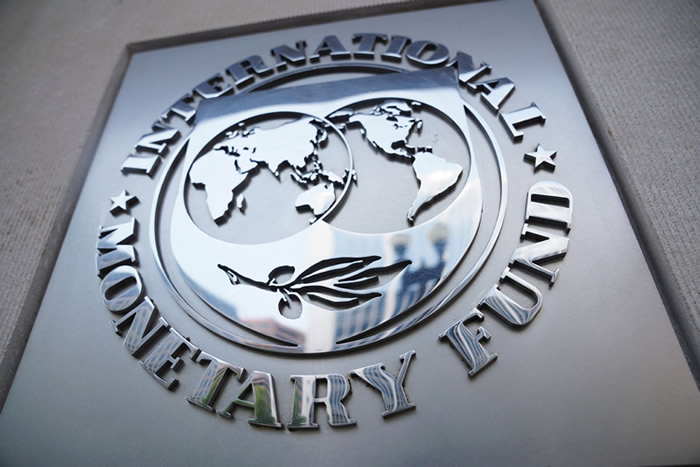
Ghana is hoping to sign a memorandum of understanding (MoU) with the bilateral Official Creditor Committee (OCC) this month to pave way for the release of another $600 million support from the International Monetary Fund (IMF).
Although the country has reached a staff level agreement after the First Review of the Extended Credit Facility (ECF) programme with the fund, the country needs an IMF Executive Board approval next month to trigger the disbursement of the second tranche of the balance of payment and structural reform support.
The board approval would be hinged on the country’s ability to sign the MoU with the OCC, which is co-chaired by China and France.
The country received approval from the IMF Executive Board in May after 10 months of discussions and negotiations for a three-year budget support programme aimed at restoring macro-economic stability and debt sustainability.
As part of prior actions to get the deal, the country had to restructure both domestic and external debts.
In a bid to restructure its $5.4 billion debt with bilateral creditors, the OCC was formed in May to grant financial assurance to the country to enable the board of the IMF to approve the country’s programme.
Following the approval of the IMF programme, the first tranche of $600 million was disbursed to the country, with the second tranche of the same quantum of amount expected next month, contingent upon a review which indicates that the country has achieved or largely achieved the targets marked for the first phase of the programme.
After its first review which ended on Thursday, October 5, the IMF staff released a statement that it had reached a staff-level agreement (SLA) with the government.
Milestones
Speaking at a joint press conference on Friday, the Minister of Finance, Ken Ofori-Atta, stressed that the staff-level agreement was only one aspect of the approval process.
He said the country had a few milestones to cross to secure an Executive Board approval between now and next month.
“Notably, the agreement on the MoU with the bilateral Official Creditor Committee (OCC). We are optimistic that, once again, our bilateral creditors will deliver the MoU in time for our board in November as we continue our engagements,” the finance minister stated.
Hard work
Mr Ofori-Atta said a lot of hard work had gone on behind the scenes to reach yet another significant milestone, which is reaching a staff-level agreement within five months, as it steadily progressed towards the approval of the first review of the programme by the IMF Executive Board in November.
He said reaching an SLA in these times of continued global uncertainty was a remarkable achievement, particularly when other countries had faced challenges in reaching SLA within the same period.
The minister said what occasioned the SLA was a strong performance of the country in end-June 2023 performance indicators.
Engaging commercial creditors
Mr Ofori-Atta also noted that the government was looking forward to engage its Eurobond holders and commercial lenders at the upcoming World Bank Annual Meetings in Marrakesh, and hopefully, it should be able to reach an agreement with them by the end of the year.
Aside from the debt restructuring efforts, the government is also seeking to restructure debts of $14 billion with its external commercial creditors, out of which $13 billion are in bonds.
This is after it announced a suspension of debt service on external commercial obligations on December 19, 2022 and has since been engaging with them on a debt restructuring.
Debt restructuring
The IMF Ghana Mission Chief, Stéphane Roudet, at the joint press conference, said the government had made progress in its debt restructuring strategy which was a big plank underpinning the fund supported programme, noting that the government had successfully completed its domestic debt restructuring.
The domestic debt restructuring saw the government swap old bonds valued at GH¢82 billion for 12 new ones at reduced coupon rates and longer tenors.
The exchange of dollar denominated local bonds of about $742 million also saw a participation ratio of 91.7 per cent; the exchange of cocoa bills worth GH¢7.7 billion also saw a participation ratio of 97.4 per cent, while the exchange of pension funds holdings of treasury bonds of about GH¢29.6 billion also saw a participation ratio of 95.3 per cent.
Mr Roudet stated that monetary policy had been appropriately tightened, wide ranging reforms were being implemented to bolster domestic revenue and improved spending efficiency; strengthen public financial management, strengthen debt management and there was high transparency in tackling financial challenges in the energy and cocoa sectors.
“The authority’s economic reforms also include measures to ensure financial stability and to make the environment more conducive for private sector investments and job creation,” he said.
“Not all challenges will be solved overnight and there is still a lot of work ahead but what makes us optimistic is that these actions are already generating positive results,” the IMF Ghana Mission chief stated.
Sustaining strong performance
For his part, the Governor of the Bank of Ghana, Dr Ernest Addison, said it was very important to sustain the strong performance and consolidate the gains that had so far been made under the IMF programme.
He said the central bank would continue to maintain a tight monetary policy stance until it was confident that inflation was firmly anchored and aligned with the disinflation path agreed in the programme.
Dr Addison added that there would be challenges and difficulties as the country worked towards sustaining the gains, and gave the assurance that the BoG remained focused and committed to the reforms and prudent policies to ensure that the full benefits of the programme were achieved.
Source: graphic.com.gh























